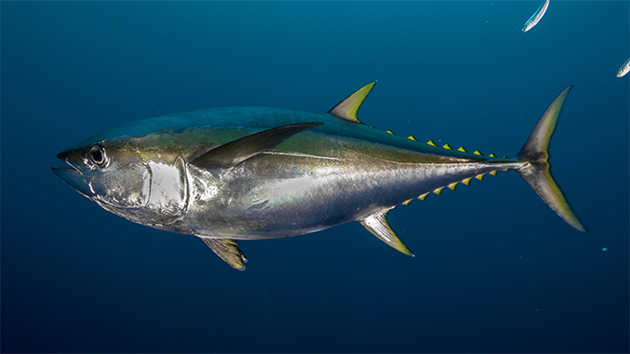While fisheries management is proving to be successful in the recovery of fish stocks, including those that have experienced decades of overfishing, the ocean “playing field” is not necessarily an even one, especially for sharks.
Large oceanic tunas, billfishes and sharks have been heavily fished, as target or incidental catch, by global fisheries since the 1950s. As a result, many populations have seen varied but often severe population declines over the past seven decades, due to increasing fishing pressure and a corresponding increase in risk of extinction -- expressed as an International Union for Conservation of Nature Red List category.
However, a new journal article, Juan-Jorda et al. 2022, shows that the advent of improved monitoring and management actions by regional fisheries management organisations (RFMOs) in the late 2000’s has led to improvements in many populations of oceanic tunas and billfishes. While this is good news, the paper finds the same is not the case for oceanic sharks.
Beginning around 2006, tuna and billfish regional fisheries management organisations implemented management actions that included improvements in data collection, reporting and enforcement of reduced quotas. This resulted in reduced fishing mortality and subsequently more stable or increasing tuna and billfish populations.
There are seven species of oceanic tunas, and their overall global populations are doing better than they were in 2011 due to improved management and increasing or stable stocks in the majority of their ranges.
Some specific examples include the Atlantic Bluefin, which saw a global reduction in extinction risk from a Red List category of Endangered in 2011 to Least Concern in 2021. Southern Bluefin also improved from Critically Endangered to Endangered, and both Yellowfin Tuna and Albacore Tuna from Near Threatened to Least Concern.
It is important to note, however, that these improvements have not been universal through these species’ ranges. For example, overall efforts of International Commission for the Conservation of Atlantic Tunas (ICCAT) member countries have contributed to significant increases in the Eastern Atlantic Bluefin population which is largely present in the Mediterranean Sea. On the other hand, the smaller Western Atlantic Bluefin stock, that only spawns in the Gulf of Mexico, has been much slower to rebuild and remains severely overfished.
Regardless, ocean sharks, which are subject to bycatch in these same oceanic tuna and billfish fisheries, have not seen any recoveries, but rather continue to decline.
The reasons behind these inequities of recovery may not be fully understood but reveal a grand challenge in managing for biodiversity loss and maximum sustainable yield in global multigear and multispecies fisheries, even as some targeted populations recover.
These inequities in recovery are most likely related to the increased sensitivities of sharks to overfishing effects, given their slow growth and reproductive cycles. In addition, there are major data gaps in oceanic shark life histories and reproduction and insufficient monitoring.


